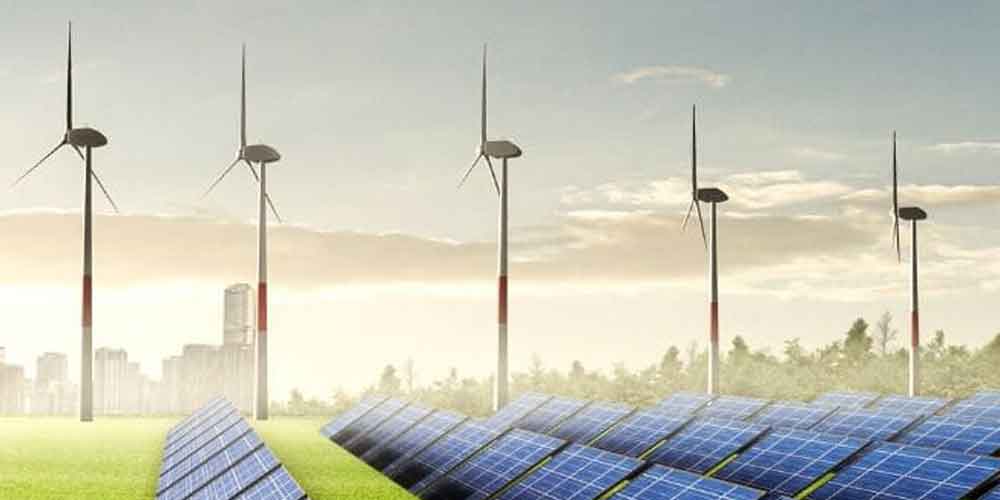NTPC Limited, a Maharatna Central Public Sector Enterprise, has been granted an exemption by the Indian Cabinet Committee on Economic Affairs (CCEA) from the current guidelines of power delegation to make investments in NTPC Green Energy Limited (NGEL), a subsidiary of NTPC Ltd.
This exemption will help enhance India’s image as a green economy, reduce its dependence on conventional sources of energy, and decrease coal import bills. It will also aid in providing uninterrupted power supply across the country, create job opportunities at the local level, and diversify India’s energy generation.
As India strives to achieve its development goals while pursuing a low carbon emission path, it aims to achieve 500 Giga Watt of non-fossil energy capacity by 2030. NTPC, as the leading power utility of the country, plans to contribute to this goal by adding 60 Giga Watt of Renewable Energy Capacity by 2032 through its investment in the renewable energy sector. This investment will assist the country in achieving its objectives and eventually moving towards the larger goal of achieving net zero emissions by 2070.
NGEL is committed to being the torchbearer of NTPC’s renewable energy journey and has 15 operational or nearly operational renewable energy assets with a total capacity of 2,861 Mega Watt. Additionally, through its subsidiary NTPC Renewable Energy Limited (NREL), NGEL is poised to expand its renewable energy portfolio by participating in competitive bidding and seizing emerging opportunities in the green energy business.
One idea that can be borrowed from this is the importance of investing in renewable energy to achieve sustainable development goals and reduce dependence on fossil fuels. This is particularly relevant in light of the increasing urgency to mitigate the impacts of climate change and transition to a low-carbon economy.
For instance, the International Energy Agency (IEA) highlights the need for a rapid and massive expansion of clean energy investments to achieve net-zero emissions by 2050 and limit global warming to 1.5°C above pre-industrial levels, as outlined in the Paris Agreement. In its Net Zero by 2050 report, the IEA states that “the scale and speed of the efforts demanded by this critical and formidable goal – our best chance of tackling climate change and limiting global warming to 1.5 °C – make this perhaps the greatest challenge humankind has ever faced.”
Countries around the world have recognized the importance of investing in renewable energy and have set ambitious targets to achieve a low-carbon future. For example, the European Union aims to become climate neutral by 2050 and has set a target of generating 32% of its energy from renewable sources by 2030. China, the world’s largest emitter of greenhouse gases, aims to peak its emissions by 2030 and achieve carbon neutrality by 2060.
By borrowing the idea of investing in renewable energy, countries can take proactive steps towards achieving their climate goals and transitioning to a more sustainable future. This could involve implementing policies and incentives to encourage the deployment of renewable energy technologies, such as solar, wind, hydro, and geothermal power.
For instance, countries could introduce feed-in tariffs, which provide a guaranteed price for electricity generated from renewable sources and incentivize investment in renewable energy infrastructure. Another option is to introduce carbon pricing, which puts a price on greenhouse gas emissions and creates a financial incentive to reduce emissions and invest in clean energy.
In conclusion, borrowing the idea of investing in renewable energy can help countries achieve their sustainable development goals and transition to a low-carbon future. Through policy incentives and investments in clean energy infrastructure, countries can reduce their dependence on fossil fuels, mitigate the impacts of climate change, and contribute to a more sustainable and equitable global future.
